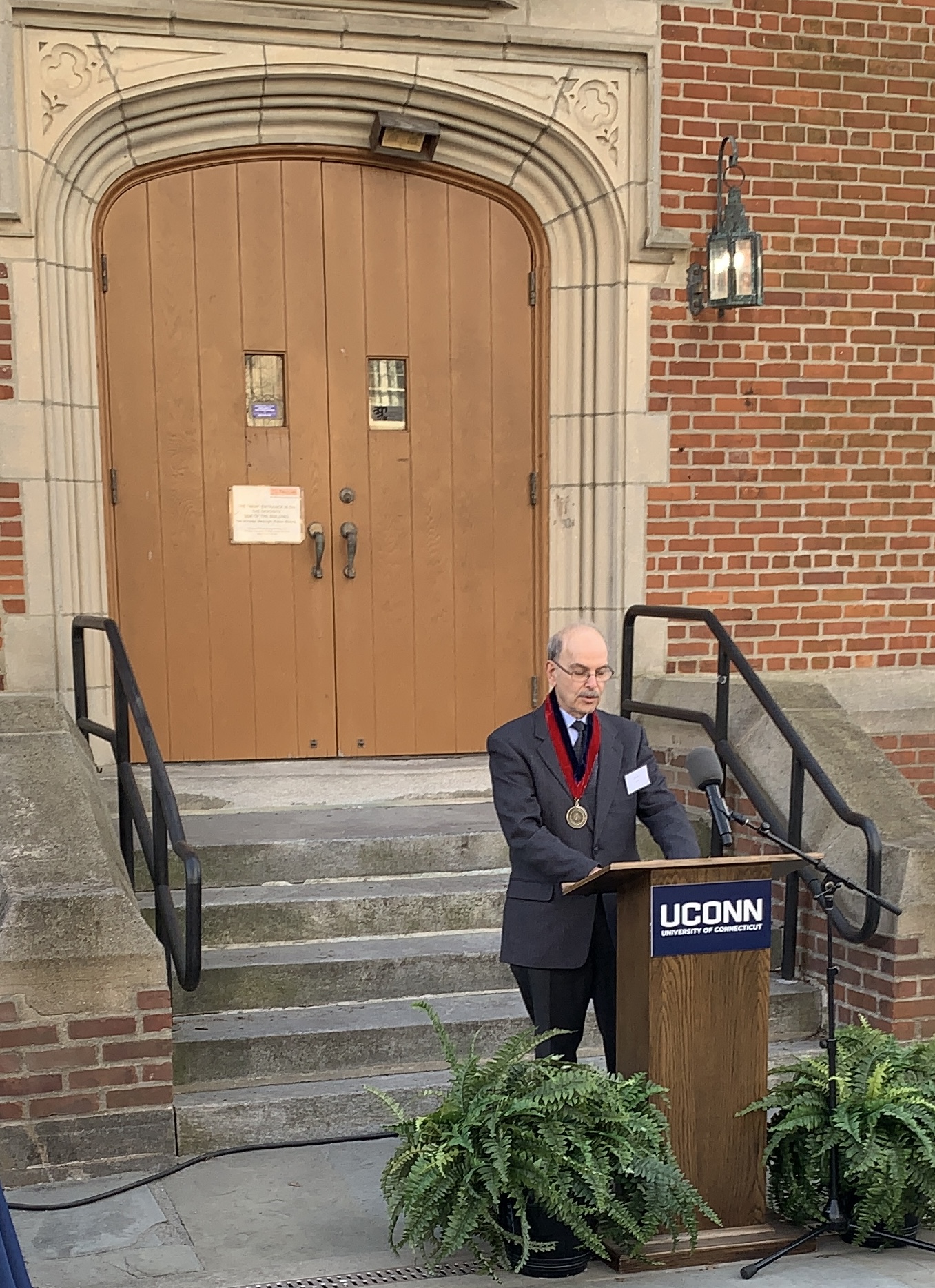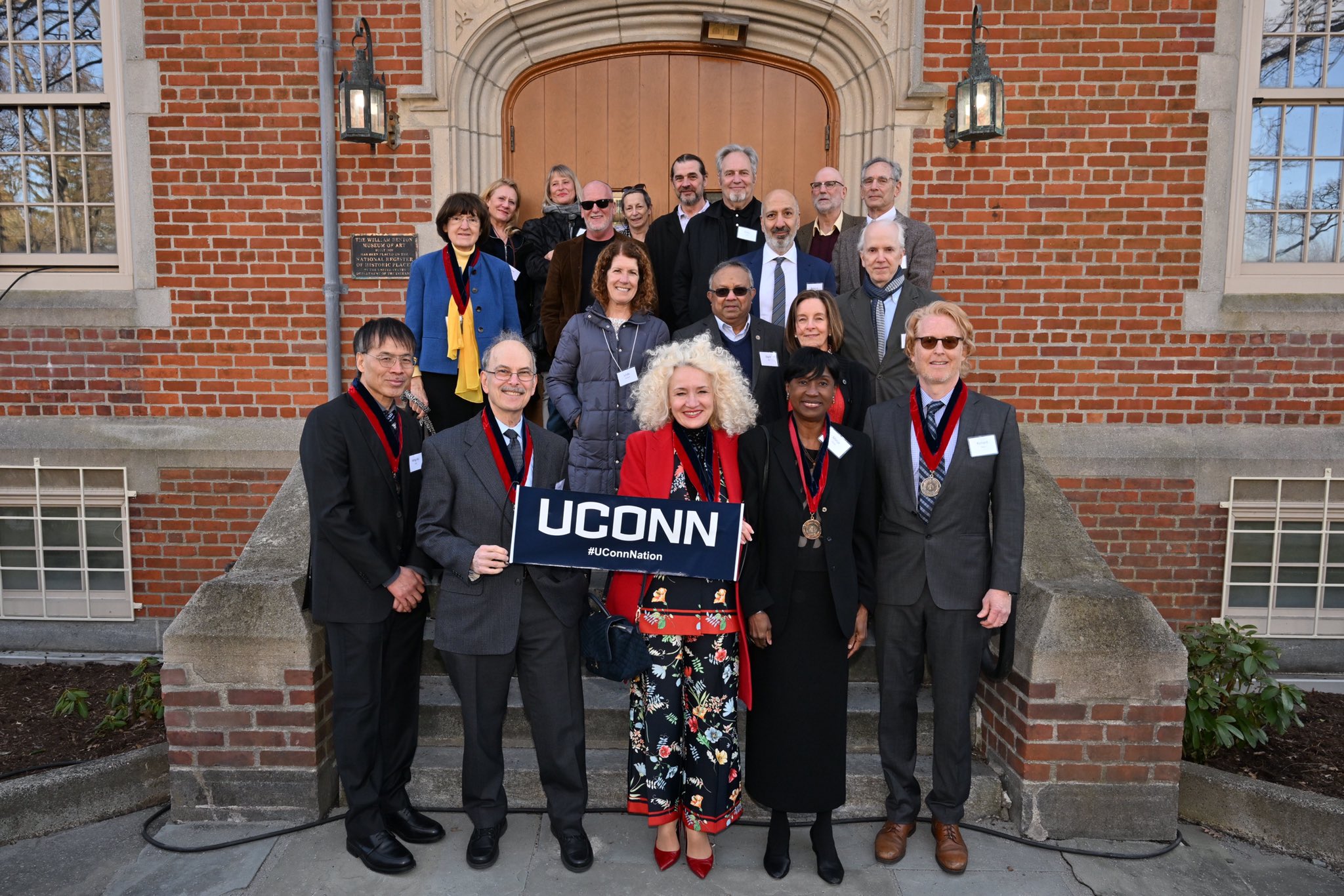02-02-22 Yasir Suhail from Evolutionary Medicine Group led by Kshitiz published in PNAS (Proceedings of the National Academy of Sciences), mapping the genetic and transcriptional across mammals with different placental invasion. Kshitiz lab, along with Gunter Wagner at Yale had previously advanced a theory “Evolved Levels of Invasability” drawing a causation between type of pregnancy in mammals, and rates of cancer malignancy in mammals.
Ref: https://www.pnas.org/doi/10.1073/pnas.2111256119
Author: Susan M Staurovsky
Dr. Eran Agmon joins CCAM as new Assistant Professor
04-13-22 CCAM has hired a new faculty member, Dr. Eran Agmon, who will join us in July. Dr. Agmon was a postdoc at Stanford and Columbia and has a PhD from Indiana University. Eran’s research is in computational biology, focusing on whole cell models and microbiome. He is also the main developer of the multiscale simulation software Vivarium. Welcome to CCAM and UConn Health, Eran!
Les Receives Board of Trustees Distinguished Professor Award
04-05-22 Last April 2021, Les Loew and five other faculty were recognized for their achievement of Board of Trustees Distinguished Professor. Today, Les and his colleagues received their medals and plaques for this most notable achievement. Congratulations to Les and his colleagues. CCAM is proud to have you as am amazing colleague Les, and grateful for all your contributions to science you have made over the course of your career.


Congratulations to Pedro Mendes, CASE inductee!
03-02-22 A warm congratulations to Pedro for being one of 12 new inductees to the Connecticut Academy of Science and Engineering (CASE). Pedro, and fellow inductees, will be honored virtually at the Academy’s 47th annual meeting on May 26, 2022. To learn more about his latest achievement please read “Twelve UConn Faculty Members Elected to Connecticut Academy of Science and Engineering“, in UConn TODAY.
Slepchenko Publication
02-18-22. Congratulations to Boris Slepchenko on his latest publication with CCAM alumnus Masoud Nickaeen, A model of actin-driven endocytosis explains differences of endocytic motility in budding and fission yeast. In this article they showed that a molecularly explicit model of forces exerted by actin filaments on endocytic invaginations explains the differences in endocytic invaginations between budding and fission yeast.